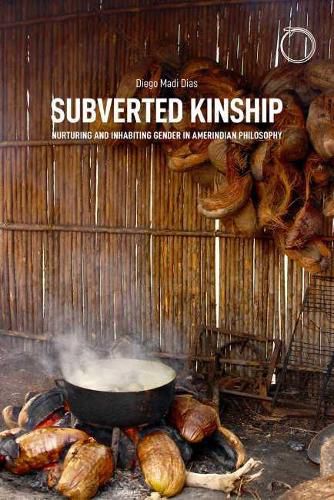Readings Newsletter
Become a Readings Member to make your shopping experience even easier.
Sign in or sign up for free!
You’re not far away from qualifying for FREE standard shipping within Australia
You’ve qualified for FREE standard shipping within Australia
The cart is loading…






Through a rich narrative ethnography of domestic life, this book explores the philosophy of social relations among the Guna (Cuna), an Amerindian people of Panama. This intimate study brings us into the heart of the family economy, describing its nuanced interactions among coresidents through two dimensions: an aesthetic of production resting on the gendered division of labor and an ethic of affects informing the language and enactment of kinship. By exploring local techniques of nurture-child-rearing, singing, feeding, and care practices-the book shows how the Guna create kinship and inhabit gender. The acceptance the Guna show for same-sex relationships and cross-gender roles-which they accorded to the author himself-allows kinship to be both subverted and affirmed at the same time. Subverting kinship does not undermine the structure or dynamics of residential interrelations; on the contrary, it dramatically foregrounds kinship as a lived experience of reciprocal nurture, thus enabling gender to be modulated, and inhabited in multiple ways.
All HAU Books are OPEN ACCESS, through Knowledge Unlatched, and are available on the HAU Books website: Haubooks.org.
$9.00 standard shipping within Australia
FREE standard shipping within Australia for orders over $100.00
Express & International shipping calculated at checkout
Through a rich narrative ethnography of domestic life, this book explores the philosophy of social relations among the Guna (Cuna), an Amerindian people of Panama. This intimate study brings us into the heart of the family economy, describing its nuanced interactions among coresidents through two dimensions: an aesthetic of production resting on the gendered division of labor and an ethic of affects informing the language and enactment of kinship. By exploring local techniques of nurture-child-rearing, singing, feeding, and care practices-the book shows how the Guna create kinship and inhabit gender. The acceptance the Guna show for same-sex relationships and cross-gender roles-which they accorded to the author himself-allows kinship to be both subverted and affirmed at the same time. Subverting kinship does not undermine the structure or dynamics of residential interrelations; on the contrary, it dramatically foregrounds kinship as a lived experience of reciprocal nurture, thus enabling gender to be modulated, and inhabited in multiple ways.
All HAU Books are OPEN ACCESS, through Knowledge Unlatched, and are available on the HAU Books website: Haubooks.org.